Probate Attorney in Texas
OVER 40 YEARS OF LEGAL EXPERIENCE

Probate Trials are the court-supervised process of administering an estate after the owner of the estate dies. Probate can be lengthy and complicated, depending on the circumstances, such as if the deceased did not have a Will or if the existing Will is improperly drafted. However, thanks to the state’s “independent administration” allowance, probate in Texas can, in some circumstances, be simpler than in many other places, allowing Executors to settle uncomplicated and uncontested estates with minimal court supervision.
If you are facing a complex probate process, it is very important to hire an experienced probate attorney.
At Stepp Law Firm PLLC, we assist clients with all aspects of probate. Our Probate lawyer can help you complete the required steps if you are the Executor of an estate, ensure your rights are protected if you are an heir or beneficiary and represent you if you are involved in a dispute regarding a will or an estate. Schedule your initial appointment with our probate lawyer or call now at (713) 336-7200.
What is Probate?
Probate is the legal process used to validate and administer the assets of the decedent’s estate.
- This includes validating the decedent’s will.
- An attorney is required to probate an estate as it is a legal process.
- The length of time and cost to finalize probate depends on the size and complexity of the estate and whether anyone files a contest.
- Larger counties have specialized courts that handle probate matters. Most counties have knowledgeable judges that handle the probate cases.
- If a valid will is not submitted to probate within 4 years of the decedent’s death, then the estate is administered as if no will existed.
Independent Administration (Texas Est. Code §402.001 – §402.053)
Non-Court administration of Estate. If a valid will exists and names an independent executor, the court will allow the executor to administer the estate with minimal involvement of the court.
Valid Will
Under Texas Law (Texas Est. Code §251.001 – §251.007) a valid will requires:
- Legal Capacity: 18 years old or over.
- Testamentary Capacity: The person making the will must, at the time the will is executed, have sufficient mental ability to understand the business in which he is engaged, the effect of his acts in making the will, the capacity to know the objects of his bounty and their claims upon him, and the general nature and extent of his property.
- Intent: Person has the formal intent to disperse their property upon their death.
- Holographic will: A will is valid if it is completed in one’s own handwriting and executed by the person. No witnesses required.
- Attested will: Must be in writing, signed by the testator or under his direction, and attested by two or more credible witnesses who are at least 14 years of age and who sign in the presence of the testator. Most common in Texas.
- Self-Proving affidavit: Executed by the testator and two witnesses in the presence of a notary. Allows a will to be self-proved in probate without the witnesses testifying.
No Will
-
Dying without a will is called dying “intestate”.
-
Intestate succession in Texas (Tex. Est. Code §201.001 – §201.152)
-
Common Examples:
- Survived by spouse and children who are also children of the surviving spouse:
- Surviving spouse inherits all the community property and 1/3 of descendant’s personal property, along with a life estate in 1/3 real property. The children inherit the remainder of the personal property and real property equally.
- Survived by spouse and children who are not children of the surviving spouse:
- Surviving spouse inherits 1/3 of the decedent’s separate personal property and a life estate in the real property. The children inherit 2/3 of the decedent’s separate property and decedent’s ½ interest in the community property.
- Survived by spouse and parents/siblings but no children:
- Surviving spouse inherits all the community property, all of the decedent’s separate personal property and ½ interest in the real property.
- Survived by spouse and children who are also children of the surviving spouse:
Probating The Estate
- Determine whether a valid will exists.
- Application For Probate: File an application in the county probate court where the decedent resided at the time of death. If a valid will exists, include the will with the application. If there is no will, then the heirs need to file an Application to Determine Heirship first.
- Notice of Probate: The County Clerk will post a notice at the local court house alerting the public that a probate application was filed for the estate and serving notice to anyone who would like to contest the probate.
- Initial Hearing: Approximately one to two months, depending on the circumstances and court’s caseload, after the application is filed, the Court will hold a hearing to validate a will. In uncontested probate, the court will validate the will, and appoint an executor or administrator. If there is no valid will, the Court will seek to determine heirship and appoint a representative to investigate.
- Inventory of Assets: Executor or administrator must catalog and report all assets held by the estate.
- Identify Beneficiaries: If a valid will exists, the executor or administrator will contact the beneficiaries named in the will. If there is no valid will, the Court will determine the heirs via the intestate succession statutes.
- Notify Creditors and Resolve Debts: The executor or administrator notify creditors (medical bills, mortgages, loans etc.) so that they may make a claim in the estate. Debts are paid out of the estate.
- Resolving Will Contest: Resolve any disputes concerning the distribution of remaining assets
- Distribute Assets: Remaining assets are distributed to valid heirs or beneficiaries.
Contesting a Will
Burden of Proof in the Will Contest
- When a will contest is filed before the will is admitted to probate, the proponents of the will bear the burden to establish that it was properly executed and that the testator had testamentary capacity.
- When a will contest if filed after the will is admitted to probate, the contestant bears the burden to establish that the will is not valid because:
- testator lack testamentary capacity;
- the testator executed the will under undue influence,
- lacked the due execution required by Texas, or
- any other valid reason.
Lack of Testamentary Capacity
- The standard for testamentary capacity to execute a will is less than the mental capacity needed to enter into a contract.
- Contests the mental capacity of the descendant at the time the will was executed.
- A condition that existed prior to execution and shows that there is some probability that it existed at the time of the will execution is also relevant.
- A self-proving affidavit establishes a prima facie case of capacity.
- Court considers expert testimony (generally medical providers who treated decedent) and lay witnesses (friends and family who knew decedents at the time the will was executed). An expert witness can opine directly on whether capacity existed.
- Lay Witness needs to have sufficient first-hand contacts, observations and conversations with the decedent as to be able to form a reasonable, intelligent opinion concerning the person’s capacity.
Undue Influence
-
Must Prove:
- Existence and exercise of an influence upon the testator;
- Which operated to subvert or over power the testator’s mind at the time the will was executed, and
- Such that the execution would not have occurred but for the undue influence.
- Contestant must prove each of these three elements by a preponderance of the evidence.
- Generally undue Influence proved by circumstantial evidence instead of direct evidence.
- Need to provide enough evidence to prove that the circumstances must be so strong and convincing and of such probative force as to lead a well-guarded mind to a reasonable conclusion not only that undue influence was exercised, but also that it controlled the will power of the testator at the time the will was executed.
- The “Bad Actor”: Looks at the conduct of the individual who influenced the Testator, their opportunity to mislead, use fraud and unduly influence the creation of the will, especially if a named beneficiary.
- Influence may be direct or by subtlety and includes fraud, influence intimidation etc. Usually involves an extended course of conduct.
-
Factors:
- Nature and type of relationship among those involved;
- Opportunity for the influence (especially relevant if a beneficiary);
- Circumstances surrounding the drafting and execution of the will;
- Existence of fraudulent motive;
- Habitual subjection of the testator to the control of another;
- State of testator’s mind at the execution of the will;
- G.Testator’s mental or physical incapacity to resist or the susceptibility of the testator’s mind
- Words and acts of the testator;
- Weakness of mind and body of the testator;
- Whether will is unnatural in its terms of disposition of property.
Due Execution
- Contests whether the purported will was created, executed and witnessed as required under Texas Est. Code §251.001 – §251.007.
- Common issues:
- Failure to include a self-authenticating affidavit;
- Faulty or contradictory testimony of witnesses at the prove up hearing;
- Failure of a holographic will to be solely in the testator’s handwriting;
- Beneficiary acts as witness or notary;
- Failure to accurately describe testator’s property in the will.
Alternatives to Probate
Small Estate Affidavit (Tex. Est. Code §205.001 – §205.009)
- Decedent died without a will.
- The estate is less than $75,000 (excluding exempt property).
- Affidavit executed by all heirs and two disinterested witnesses.
- Cons: Only used with assets less than $75,000; Unique to Texas, banks and financial intuitions may not accept and request full probate; Cannot be used if the debt exceeds the amount of the estate.
Muniment of Title (Tex. Est. Code §257.001 – §205.103)
- Decedent left a valid will.
- Decedent has no unpaid debts.
- Best when there are few assets, notably only real property that needs to have the title changed.
- Cons: Unique to Texas, out of state and private institutions may not recognize it; Should not be used if there is a dispute or the heirs do not agree.
Trusts
- Can be used instead of a will to disburse an estate’s assets.
- Can bypass probate by moving assets into trust and arrange for assets to be distributed as the settlor desires.
- Distribution of assets is not subject to public record, unlike when an estate is probated in court.
- Allows an identified trustee or trust company to manage assets on behalf of beneficiaries.
- Can protect assets from creditors.
- More expensive than a will to create; however can save the estate money and time after the grantor passes away.
- Assets must be moved into the Trust.
- Can avoid probate in multiple states as long as the assets in the various states are included in the trust.
Types of Trusts in Texas
Testamentary Trust
- Created under the terms of the will and does not come into existence until after the settlor’s death.
- Trust terms can be changed during the settlor’s life.
- The trust’s assets are transferred via probate.
- Becomes an Irrevocable trust upon settlor’s death.
- Allows an individual to name a trustee to manage the assets for the beneficiaries (generally used when a minor is a beneficiary).
Bypass Trust
- Initially designed to avoided estate taxes.
- Created by a will at death, a portion of the decedent’s estate, up to the estate tax exemption amount is placed in a trust, for the surviving spouse. The remainder of the estate passes via a will or other means.
- Appreciation of assets left in the trust is not included in the surviving spouse’s estate.
Revocable Trust
- Created during the settlor’s life.
- Trust can be changed or revoked by the settlor at any time.
- Upon the death of the settlor, the trust becomes irrevocable.
- During settlor’s life, assets are owned by the trust, but accessible to the settlor.
- Assets are still part of the estate, but are administered via terms of the trust and not through probate.
- Can protect an individual if they become mentally incapacitated later in life as assets are already transferred and controlled by a trustee.
- Con: As settlor retains the power to modify the trust a creditor or claimant may be able to reach assets.
Irrevocable Trust
- Unlike revocable trusts, irrevocable trusts cannot be modified once created; assets are permanently transferred to the trust and management of the trustee.
- Better at protecting assets from creditors or litigation.
Contact Our Probate Attorney in Texas Today to Get Started
If you have questions about probate or need assistance settling an estate, our probate law firm can help you pursue the results you deserve no matter which side of the probate process you are on.
Contact our Texas probate attorneys at Stepp Law Firm PLLC to discuss your unique circumstances with one of our skilled probate lawyers today.
We know that losing a loved one is never easy. We are proud to provide compassionate representation and top-notch personalized legal services for each client. We will be pleased to review your case during an initial appointment, which can be made by calling (713) 336-7200 or filling out our contact form. Your loved one’s memory should be honored by evaluating their final wishes, whether there was a will or not, and we can help you pursue the process without delay.
Fiduciary Handbook for Estates
Probate Frequently Asked Questions
What is probate?
Probate is a proceeding usually in County Court where a judge supervises the payment of debts and the distribution of a person’s property after their death. If there is no will, the Judge will appoint an Administrator who will pay debts out of the assets, and the remainder, if any will be distributed to the beneficiaries. If there is a will, it will likely name an Executor who will do the same as regards the debts and property. The case is then closed when the Judge is satisfied that the debts have been paid and the property has been distributed properly.
Do I have to hire an attorney?
Yes, in most cases where the amount of the estate is more than $75,000, a probate attorney is required.
How long do I have to probate a will?
Four (4) years after the person dies.
What if there is no will?
It is more common than not that a person dies intestate, or without a will. Again, if the estate is worth more than $75,000, your attorney will likely need to file an application to determine heirship wherein the judge will determine who the lawful heirs should be and will appoint an Administrator to pay debts and to have the property transferred to the rightful heirs.
What are Letters Testamentary or Letters of Administration?
These are letters signed by the court once the proper paperwork is filed and after a hearing by the judge indication that the person named has the legal authority to deal with the assets of the deceased. Letters Testamentary are used to give the Executor of the will the legal authority and Letters of Administration give the power to deal with the assets of the deceased to the Administrator appointed by the Court where there is no will.
How long are Letters Testamentary or Letters of Administration valid?
60 days.
How long does it take for probate.?
If the paperwork is filed properly and there are no contests, a properly authenticated will can be probated in approximately 2-3 months, though more often than not it is 3-6 months. An estate proceeding where there is no will may take longer because the Court must appoint an Attorney Ad Litem to represent the unknown interests.
What does probate cost?
Simple probate where the will is properly drawn, and there are no contests by beneficiaries or heirs may cost as low as $2,500-$3500. If the will is not properly drawn, if there are irregularities or contests by potential heirs or beneficiaries, the fees and costs will be substantially more.











